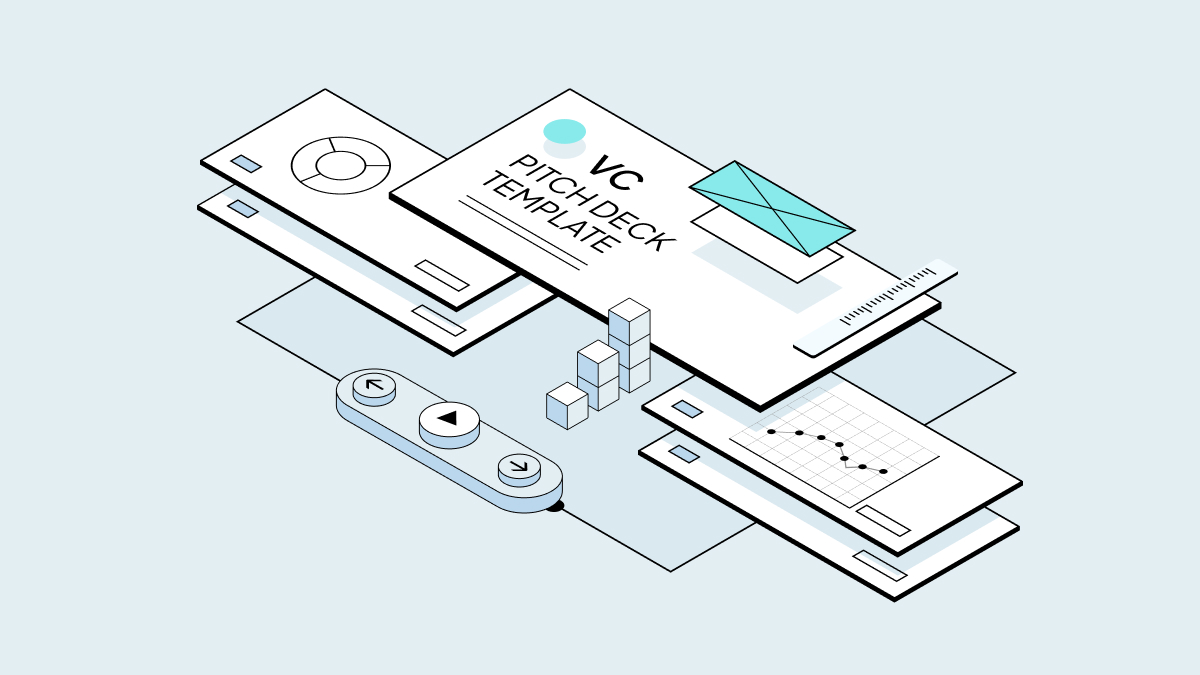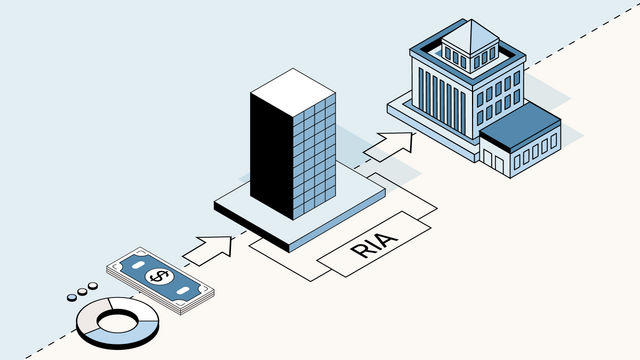What is an investor pitch deck?
A pitch deck is a presentation that describes a business plan and solicits outside investment. Often, company founders and executives use a pitch deck to help raise funding for a startup from venture capitalists (VC). Other times, a VC fund manager uses a pitch deck to raise new capital from limited partners (LP) for an investment fund. This second type of pitch deck is called an investor pitch deck, or LP pitch deck.
An LP pitch deck typically takes the form of a slide deck that tells prospective investors in a VC fund about the fund’s leaders, its investment thesis, and why the firm is uniquely positioned to execute on its strategy.
LP pitch deck template & examples
Ready to make your own investor pitch deck for LPs? Prepare for your next meeting with investors using our free pitch deck template and example pitch decks.

Download the template
The VC pitch deck template was developed in partnership with Kauffman Fellows.
The outline of a pitch deck for LPs
The purpose of an investor pitch deck is to convince other investors to commit their capital to your fund. There is no standard format or structure for an investor pitch deck. However, most pitch decks cover several of the same key topics about a fund and its strategy, which we’ll outline below.
The basics
A pitch deck provides a basic introduction to your investment fund and key people, such as partners or other investment committee and team members who will be sourcing dealflow and making investment decisions. Your pitch deck should cover the background and experience of these key participants and decision-makers and highlight how they plan to leverage that experience through this particular fund.
The combination of a fund’s leaders and their past experiences is often one of a fund’s differentiators—the factor or factors that will allow this fund to stand out from the marketplace. Your pitch deck should emphasize these differentiators and make the case to prospective LPs why the fund could be an attractive value proposition.
The fund thesis
Your fund’s investment thesis is a definition of how you plan to deploy the capital in your fund. LPs often use the fund thesis as a quick way to see whether a particular fund is a match with their own investment mandates and preferences.
Your fund thesis will also support your compliance with the “ venture capital fund” definition under the Investment Advisers Act of 1940 if you plan to rely on the related regulatory exemption for private funds.
Common elements of a fund thesis include:
-
Anticipated fund size: How much capital do you plan to raise from LPs?
-
Investment stage: At what stage or stages of the startup lifecycle do you plan to invest?
-
Industry focus: In what industry or industries will you invest?
-
Geographic focus: In what region or regions will you invest?
-
Differentiators: What is unique about your fund that will allow you to execute your strategy?
A lot of thought and effort goes into determining a fund’s thesis. But in the end, you should be able to sum it up in one or two straightforward sentences. Here’s an example thesis from a hypothetical venture fund:
“Krakatoa Ventures is raising a $25 million seed fund to back U.S.-based startups focused on climate technology and earth sciences. The fund will capitalize on a highly specialized network of climate scientists the general partners developed during their two decades of academic study in volcanology and climatology.”
The track record
Almost everyone who starts an investment fund has some prior track record as an investor, whether that’s a long career as a principal or partner in an established VC fund, a handful of prior deals as an angel investor, or experience bringing together your strong network of investors and founders for access to a few deal-specific special purpose vehicles (SPV). Include details about your investment team’s past work as investors, such as sample investments you’ve made or financial returns from past deals.
An investor’s track record is an important piece of evidence for LPs as they decide which venture funds to invest in. Past performance certainly does not guarantee future results, but it can be a helpful indicator.
The fund details
Your fund thesis is the basic statement of how your fund will operate. But investment funds can be complicated. Consider including some the following information to clearly define your fund:
-
Fees and carry: What management fees and other fees will you charge LPs? What percentage of the fund’s returns will you take as carried interest? Historically, the standard fee structure in venture capital is “2 and 20,” meaning a 2% management fee and 20% carry.
-
Check size: What size investments do you plan to make in portfolio companies?
-
Portfolio structure: How many investments will your fund plan to make? How will those investments complement each other to form a cohesive portfolio?
-
Your LPs: What sorts of LPs will your fund target? How many LPs will your fund target? What size investments will you seek from LPs?
-
Follow-on strategy: How will your fund approach potential follow-on investments in portfolio companies? Will you maintain your pro rata ownership, spin up SPVs or allow direct co-investment from LPs?



